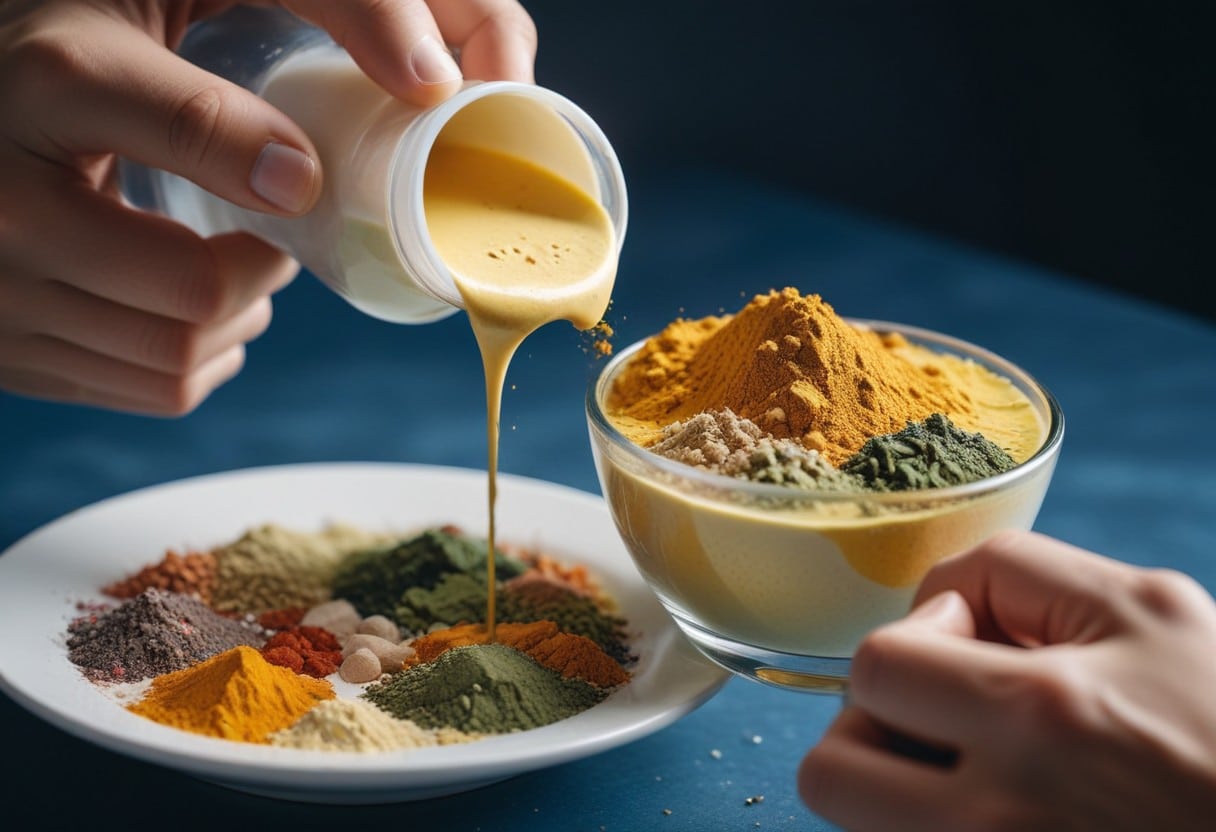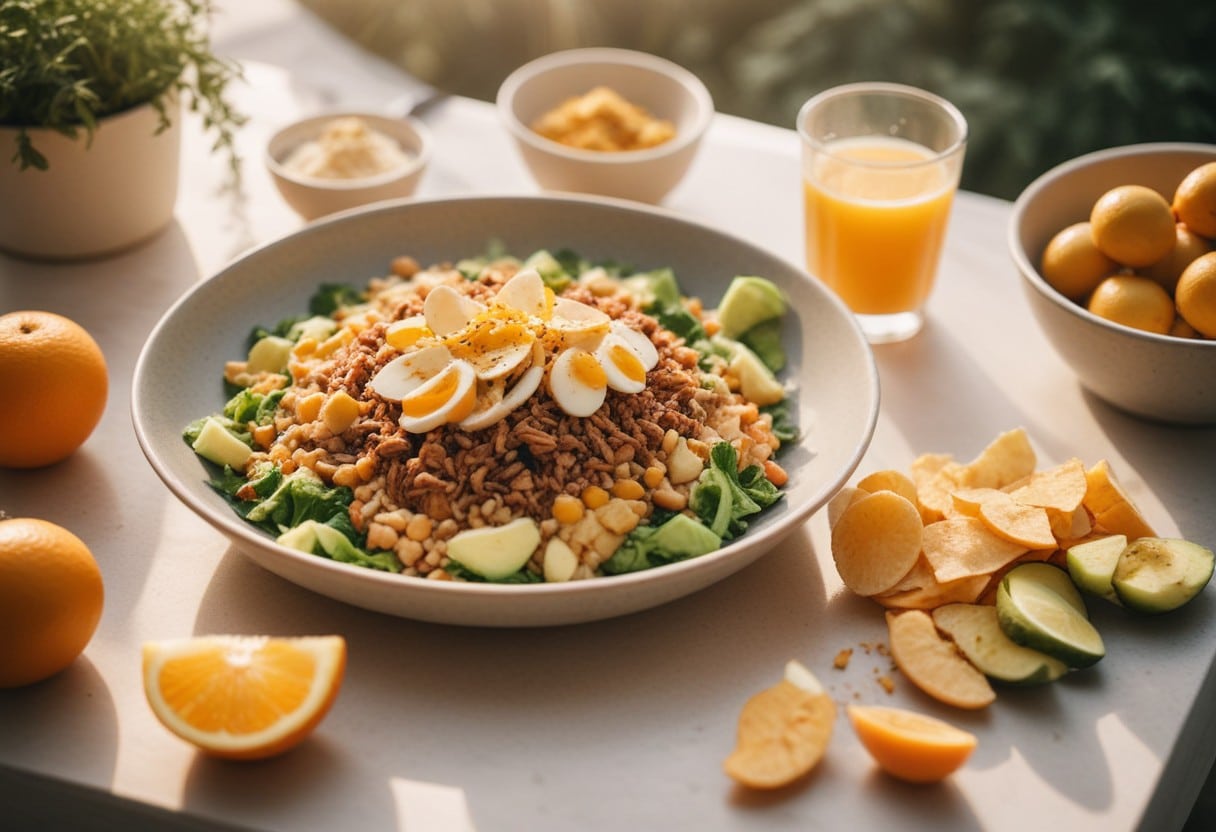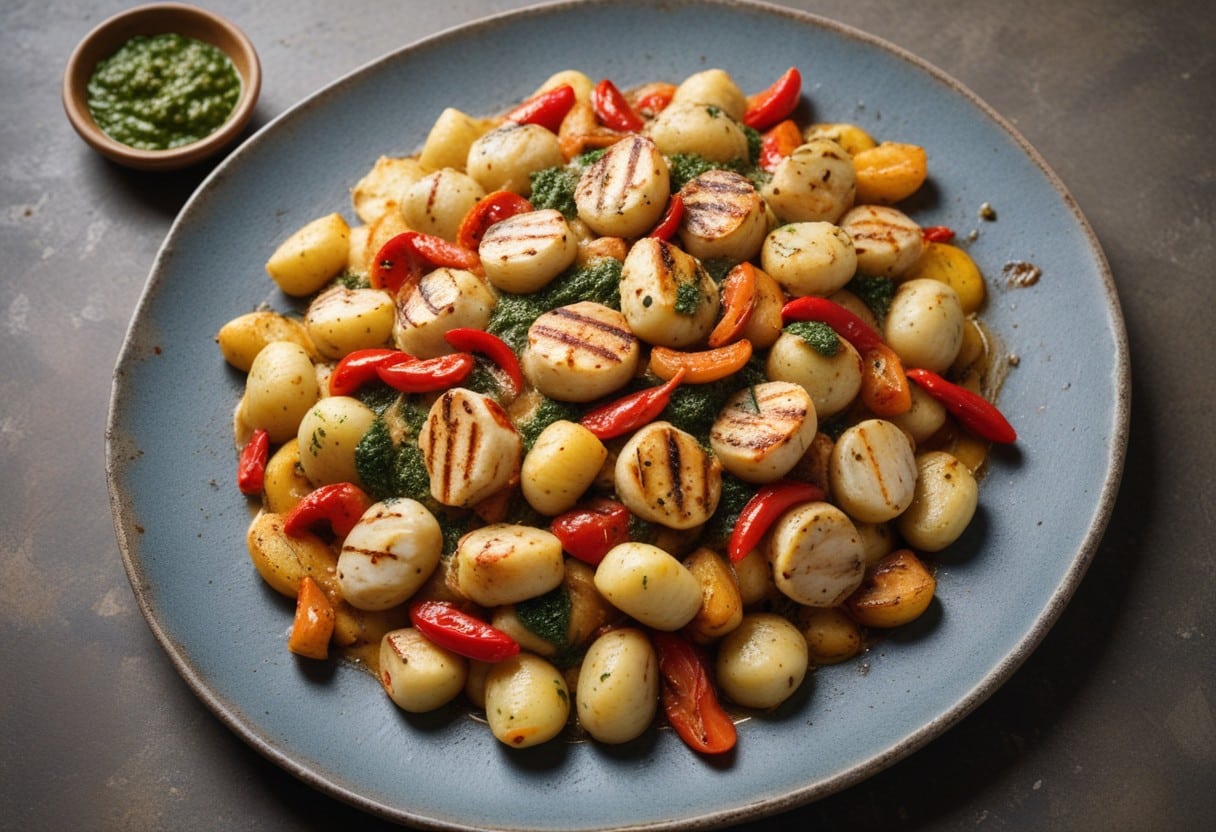The concept of “deț” has been gaining traction in health and wellness circles, intriguing many with its potential benefits and versatile applications. This article delves into the various facets of “deț,” exploring its origins, health benefits, and practical uses, especially in dietary contexts. To ensure a comprehensive understanding of this emerging concept, we will delve into a range of frequently asked questions, addressing common queries and providing deeper insights into the subject.
Understanding “Deț”: An Introduction to Its Origins and Uses
The term “deț” does not have a universally recognized definition in mainstream health literature. Still, it often refers to a particular dietary or wellness practice, ingredient, or method that is believed to offer health benefits. Given the varied interpretations, this guide will explore “deț” as a holistic health concept encompassing nutrition, lifestyle, and overall well-being.
Origins and Historical Context
The origins of “deț” are somewhat nebulous, with references to various cultural traditions that emphasize natural and holistic health practices. It is often associated with ancient dietary practices focusing on balance, natural ingredients, and the body’s innate ability to heal and thrive.

Key Ingredients in “Deț”
“Deț” is often associated with superfoods and natural ingredients known for their health-promoting properties. Below, you’ll find a selection of essential components:
Health Benefits and Versatility: Turmeric
Supporting joint health, improving digestion, and boosting immune function, turmeric, a bright yellow spice steeped in centuries of traditional medicine, particularly in India, owes its potent properties to curcumin, a compound renowned for its powerful anti-inflammatory and antioxidant effects.
Medicinal and Culinary Uses of Ginger:
Renowned for over 2,000 years for its medicinal prowess, ginger, a humble root, stands as a stalwart ally in health. Its reputation precedes it, celebrated for its prowess in alleviating nausea, enhancing digestion, and quelling inflammation. Moreover, ginger’s antioxidant attributes and immune-boosting potential further solidify its status as a vital botanical asset.
Nutritional Superfood: Spirulina
With its rich nutritional profile, spirulina emerges as a powerhouse among superfoods. This blue-green algae boasts high levels of protein, vitamins, minerals, and antioxidants. Its reputation precedes it, celebrated for its capacity to enhance energy, fortify immune defenses, and facilitate detoxification, making spirulina an invaluable addition to any wellness regimen.
Adaptogen Herb: Ashwagandha
Steeped in the rich traditions of Ayurvedic medicine, ashwagandha emerges as a revered adaptogenic herb. Its holistic benefits extend far and wide, aiding in stress management, anxiety reduction, and overall well-being. Renowned for its cognitive-enhancing properties, ashwagandha also serves as a catalyst for heightened energy levels and fortified immune resilience, embodying a holistic approach to vitality and health.
Nutrient-Rich Tree: Moringa
Dubbed the “miracle tree,” moringa stands as a nutritional powerhouse in the plant kingdom. Laden with a plethora of vitamins, minerals, and antioxidants, its leaves offer a bounty of wellness benefits. Moringa’s anti-inflammatory prowess, blood sugar-regulating abilities, and overall health-boosting properties underscore its status as a botanical marvel, enriching vitality and well-being.
Nutritional Benefits of “Deț”: A Comprehensive Overview
Packed with Essential Nutrients: The Rich Nutritional Profile of “Deț”
A core component of the “deț” philosophy is the use of nutrient-dense foods. Rich in a plethora of vital nutrients, these foods serve as a veritable treasure trove of vitamins, minerals, and essential elements crucial for maintaining optimal health. Among the myriad nutrients synonymous with “deț,” one can find:
- Vitamins: Vitamins play essential roles in immune function, skin health, and antioxidant defense mechanisms. Specifically, vitamins A, C, and E are crucial for supporting immunity, collagen synthesis, and shielding the body from oxidative stress.
- Minerals: Supporting bone health, muscle function, and cardiovascular wellness, minerals are essential. Magnesium, calcium, and potassium regulate blood pressure, aid in nerve function, and fortify bones and muscles.
- Fiber: Promoting digestive health and maintaining stable blood sugar levels, fiber is crucial. It supports regular bowel movements and is crucial for digestive health promotion, stabilize your sugar level in blood, aids in weight management, and nurtures gut health and immunity.
How “Deț” Promotes Digestive Health: Key Benefits and Mechanisms
A diet rich in fiber and natural probiotics, which are often emphasized in “deț” practices, can significantly enhance digestive health. Facilitating regular bowel movements and fostering a flourishing gut microbiome, staples in this dietary approach include fermented vegetables, yogurt, and whole grains.
Supports Immune Function
The nutrient-rich foods encouraged in “deț” provide essential support to the immune system. Antioxidants, vitamins, and minerals help strengthen the body’s defenses against illnesses and infections.
Enhances Mental Clarity and Focus
Certain ingredients in “deț,” such as ashwagandha and spirulina, are known for their cognitive benefits. They help reduce stress, improve memory, and enhance overall mental clarity and focus.
Anti-Inflammatory Benefits
A significant contributor to various diseases, such as heart disease and arthritis, chronic inflammation is reduced by the potent anti-inflammatory properties of ingredients like turmeric and ginger.
Practical Applications of “Deț” in Daily Life
Incorporating “Deț” in Your Diet
Incorporating “deț” into your diet can be both effortless and delightful. Here are some actionable recommendations to seamlessly integrate this nutrient-rich element into your daily meals:
- Embrace Whole Foods: Opt for a diverse array of whole food such as whole grains, and lean proteins, to provide your body what it needs as an essential nutrient. These unprocessed foods not only nourish your body but also offer a wide range of health benefits, including improved digestion, enhanced energy levels, and better overall well-being.
- Harness the Power of Fermented Foods: These probiotic-rich foods contain beneficial bacteria that support digestion, strengthen the immune system, and may even alleviate certain gastrointestinal issues. By incorporating fermented foods into your meals, you can cultivate a thriving ecosystem of microorganisms in your gut, which is essential for maintaining optimal health and vitality.
- Prioritize Balanced Meals: By aiming for nutrient rich foods, you can ensure that your body receives the essential nutrients it needs to function optimally. Additionally, balancing your meals can help stabilize blood sugar levels, regulate appetite, and sustain energy levels throughout the day, promoting overall health and wellness.

Sample “Deț”-Inspired Recipes
- Quinoa and Chickpea Salad
- Ingredients: One cup of cooked quinoa, one cup of cooked chickpeas, one cucumber (diced finely), one red bell pepper (diced into small pieces), one-fourth cup of freshly chopped parsley leaves, three tablespoons of extra virgin olive oil, two tablespoons of freshly squeezed lemon juice, salt and freshly ground black pepper to taste.
- Instructions:
- Combine chickpeas, cooked quinoa, diced cucumber, and red bell pepper in any utensil and mix well.
- Whisk together lemon juice, olive oil, salt, and pepper in the same utensil as a dressing.
- Now pour over this dressing to the mixture pf quinoa and cucumber salad and toss to coat.
- Stir in chopped fresh parsley and serve chilled or at room temperature.
- Fermented Veggie Bowl
- Ingredients: One cup of cooked brown rice, half cup of tangy kimchi, half cup of tangy sauerkraut, one-fourth cup of finely shredded carrots, one-fourth cup of thinly sliced radishes, two tablespoons of toasted sesame seeds, two tablespoons of low-sodium soy sauce, one tablespoon of rice vinegar.
- Instructions:
- Layer cooked brown rice in a bowl.
- Arrange kimchi, sauerkraut, shredded carrots, and sliced radishes on top.
- Now just drizzle with rice vinegar & soy sauce, and sprinkle with sesame seeds and mix well enough before eating.
- Ginger Turmeric Smoothie
- Ingredients: One cup of unsweetened almond milk, one ripe banana, one teaspoon of ground turmeric, one teaspoon of ground ginger, one tablespoon of organic honey or pure maple syrup, half teaspoon of ground cinnamon, half cup of ice cubes.
- Instructions:
- Blend almond milk, banana, ground turmeric, ground ginger, honey or maple syrup, cinnamon, and ice until smooth.
- Serve immediately for a refreshing and anti-inflammatory boost.
- Sweet Potato Stuffed with Chickpeas and Avocado
- Ingredients: Two large sweet potatoes, one can of chickpeas (drained and rinsed thoroughly), one ripe avocado (diced into small cubes), one-fourth red onion (finely chopped), juice of one lime, two tablespoons of creamy tahini, salt and freshly ground black pepper to taste, fresh cilantro leaves for garnish.
- Instructions:
- Bake sweet potatoes until tender.
- Combine chickpeas, diced avocado, chopped red onion, lime juice, and tahini in a bowl.
- Season with salt and pepper.
- Slice baked sweet potatoes open, stuff with chickpea mixture, and garnish with fresh cilantro before serving.
- Fava Bean and Quinoa Salad
- Ingredients: One cup of cooked quinoa, one cup of cooked and peeled fava beans, one cucumber (finely diced), one red bell pepper (finely diced), one-fourth cup of freshly chopped mint leaves, one-fourth cup of freshly chopped parsley leaves, three tablespoons of extra virgin olive oil, two tablespoons of freshly squeezed lemon juice, salt and freshly ground black pepper to taste.
- Instructions:
- Combine cooked quinoa, cooked and peeled fava beans, diced cucumber, and red bell pepper in a bowl, and whisk together salt, olive oil, lemon juice, and pepper for dressing.
- Stir in chopped fresh mint and parsley.
- Serve chilled or at room temperature.
- Chickpea Flour Pancakes
- Ingredients: One cup of chickpea flour, one teaspoon of baking powder, one-fourth teaspoon of salt, one cup of lukewarm water, two tablespoons of extra virgin olive oil, one cup of finely chopped fresh spinach leaves, half cup of diced tomatoes (seeds removed).
- Instructions:
- Whisk together chickpea flour, baking powder, salt, water, and olive oil in a bowl until smooth.
- Stir in chopped spinach and diced tomatoes.
- Cook batter in a non-stick skillet to form pancakes.
- Garnish with fresh herbs before serving.
- Turmeric Lentil Soup
- Ingredients: One cup of red lentils, one onion (finely diced), two cloves of garlic (minced), one carrot (diced into small pieces), one celery stalk (finely chopped), one teaspoon of ground turmeric, one teaspoon of ground cumin, six cups of low-sodium vegetable broth, salt and freshly ground black pepper to taste, fresh cilantro leaves for garnish.
- Instructions:
- Cook diced onion, minced garlic, diced carrot, and celery until softened in heated olive oil in pan.
- Stir in ground turmeric and cumin.
- Garnish with fresh cilantro and also season with salt and pepper before serving.
- Spirulina Smoothie Bowl
- Ingredients: One ripe banana, one cup of mixed frozen berries, half cup of unsweetened almond milk, one teaspoon of spirulina powder, one tablespoon of chia seeds, fresh fruit slices and granola for topping.
- Instructions:
- Blend banana, frozen berries, almond milk, and spirulina powder until smooth.
- Now pour the smoothie into a cup shaped bowl or any simple bowl and top with chia seeds, and fresh fruit and even granola(optional).
- Consume it immediately after dressing.
- Ashwagandha Tea
- Ingredients: One teaspoon of high-quality ashwagandha powder, one cup of freshly boiled hot water, one teaspoon of raw honey, half teaspoon of ground cinnamon.
- Instructions:
- Mix ashwagandha powder with hot water until dissolved.
- Stir in honey and cinnamon.
- Let steep for a few minutes before drinking.
- Moringa Green Juice
- Ingredients: One cup of fresh kale leaves (washed and stems removed), one cucumber (peeled and chopped into chunks), one green apple (cored and sliced), one tablespoon of organic moringa powder, juice of one lemon, one cup of filtered water.
- Instructions:
- Blend kale leaves, cucumber, green apple, moringa powder, lemon juice, and water until smooth.
- Strain if desired and serve immediately.
Lifestyle Practices in “Deț”
Beyond diet, “deț” emphasizes a holistic approach to health that includes physical activity, mindfulness, and stress management.
- Prioritize 7-9 hours of restful sleep each night to support physical recovery, cognitive function, and emotional well-being. Mix up your exercise routine with a blend of aerobic activities to boost heart health, strength training to build muscle, and flexibility exercises to enhance joint mobility. Integrate mindfulness practices like meditation or yoga into your daily routine to alleviate stress, sharpen focus, and foster mental clarity.
Advantages of “Deț”
| Advantages | Description |
| 1. Nutrient-Rich | “Deț” emphasizes nutrient-dense foods like quinoa, spirulina, and moringa, which provide essential vitamins and minerals for overall health. |
| 2. Anti-Inflammatory Properties | Ingredients like turmeric and ginger in “deț” have strong anti-inflammatory effects, helping to reduce chronic inflammation. |
| 3. Supports Digestive Health | High-fiber foods and probiotics in “deț” improve gut health and regularity. |
| 4. Boosts Immune System | Nutrient-dense foods like spirulina and moringa help strengthen the immune system. |
| 5. Enhances Mental Clarity | Ashwagandha and other adaptogens in “deț” can improve cognitive function and reduce stress. |
| 6. Promotes Weight Loss | Balanced meals rich in whole foods and fiber can support healthy weight management. |
| 7. Detoxification Boost | Incorporating ingredients like spirulina aids in the body’s natural detox process, eliminating heavy metals and toxins for enhanced well-being. |
| 8. Stress Relief | Harness the power of adaptogenic herbs like ashwagandha to effectively manage stress levels, promoting a sense of calm and balance in daily life. |
| 9. Improves Skin Health | Antioxidant-rich foods in “deț” protect against oxidative stress, promoting healthy skin. |
| 10. Sustained Energy Support | Fuel your body with nutrient-dense foods and balanced nutrition to maintain steady energy levels throughout the day, supporting productivity and vitality. |
| 11. Supports Cardiovascular Health | Healthy fats, fiber, and antioxidants in “deț” contribute to heart health. |
| 12. Blood Sugar Balance | Incorporating foods such as quinoa and leafy greens into your diet helps regulate blood sugar levels, promoting stable energy levels and overall health. |
| 13. Sustainable Food Choices | “Deț” often includes plant-based foods, which are more sustainable and environmentally friendly. |
| 14. Versatile and Adaptable | The principles of “deț” can be adapted to various dietary preferences and restrictions, making it accessible to a wide audience. |
| 15. Encourages Whole Food Consumption | Focus on unprocessed foods leads to a healthier diet and lifestyle. |
| 16. Cultural Integration | “Deț” incorporates global superfoods, allowing for a diverse and inclusive dietary approach. |
| 17. Economic Benefits | The growing demand for “deț” ingredients creates economic opportunities for farmers and producers of these superfoods. |
| 18. Innovative Products | The market for “deț” has led to the development of innovative health products and supplements. |
| 19. Community and Social Impact | “Deț”-based diets promote community well-being and awareness of holistic health practices. |
| 20. Holistic Health Approach | Combines dietary changes with lifestyle practices like mindfulness and regular exercise for comprehensive health benefits. |
Disadvantages of “Deț”
| Disadvantages | Description |
| 1. Cost | High-quality “deț” ingredients like spirulina and ashwagandha can be expensive. |
| 2. Availability Constraints | Some superfoods may be scarce or unavailable in certain regions, restricting accessibility for individuals in those areas |
| 3. Dietary Restrictions | Some individuals may have allergies or sensitivities to common “deț” ingredients. |
| 4. Lack of Standardization | “Deț” is not a standardized diet, leading to variations in interpretation and implementation. |
| 5. Potential for Nutrient Imbalance | Without proper planning, focusing too heavily on certain foods could lead to nutrient imbalances. |
| 6. Limited Research | While many “deț” ingredients have traditional uses, scientific research on some of their health benefits is still limited. |
| 7. Time-Consuming | Preparing meals from whole, unprocessed foods can be time-consuming compared to convenience foods. |
| 8. Market Exploitation | The popularity of “deț” can lead to market exploitation, where products are marketed with misleading health claims. |
| 9. Overemphasis on Supplements | Reliance on supplements rather than whole foods may not provide the same health benefits. |
| 10. Cultural Appropriation | The commercialization of traditional ingredients can sometimes lead to cultural appropriation and loss of traditional knowledge. |
| 11. Possible Side Effects | Some superfoods and herbs, like ashwagandha, may have side effects or interact with medications. |
| 12. Environmental Impact | High demand for certain superfoods can lead to overharvesting and environmental degradation. |
| 13. Misleading Claims | Health benefits of “deț” are sometimes overstated in marketing materials, leading to unrealistic expectations. |
| 14. Dietary Transition Challenges | Switching to a “deț” diet can be challenging for those used to highly processed foods. |
| 15. Potential for Deficiency | Focusing on certain superfoods might neglect other essential food groups, leading to deficiencies. |
| 16. Individual Variability | Health benefits of “deț” ingredients can vary widely among individuals, making it hard to predict outcomes. |
| 17. Ethical Concerns | Sourcing of certain “deț” ingredients may involve ethical concerns, such as labor practices and fair trade issues. |
| 18. Over-Reliance on Trends | “Deț” can be seen as a trend, and reliance on trends rather than evidence-based practices can undermine long-term health strategies. |
| 19. Incomplete Knowledge | The holistic approach of “deț” might overshadow other necessary medical or nutritional advice from professionals. |
| 20. Economic Disparities | The cost of adopting a “deț” diet may exacerbate economic disparities, as lower-income individuals might not afford high-quality “deț” ingredients. |
The Evolving Role of “Deț” in Health and Wellness: Future Trends and Forecasts
As interest in natural and holistic health practices continues to grow, “deț” is likely to gain more recognition and integration into mainstream wellness routines. Research into traditional diets and their modern applications will further clarify the benefits of “deț” and how best to incorporate its principles into daily life.
Innovative Uses of “Deț”: Exploring Emerging Trends and Developments
- Diets That Are Plant-Based: Anticipate the emergence of innovative plant-based “deț” dishes that blend diverse vegetarian and vegan ingredients from various culinary traditions, reflecting the growing popularity of plant-based diets. This trend heralds an era of culinary fusion where unique flavors and textures redefine the dining experience, catering to a diverse array of palates and preferences.
- Sustainable Eating: Sustainability is becoming a critical component of dietary choices. “Deț” practices that emphasize locally sourced, organic, and minimally processed foods will align with this trend, promoting not only personal health but also environmental well-being.
- Revolutionizing Functional Foods: Continuing their ascent in popularity, functional foods are poised to revolutionize dietary habits by offering health benefits that extend beyond mere sustenance. These nutritional powerhouses provide holistic well-being by addressing specific health concerns, promising a future where food serves as medicine and nourishment harmoniously intertwine. Ingredients like spirulina, turmeric, and ashwagandha are considered functional foods and will be increasingly incorporated into daily diets.
Market Impact
The growing popularity of “deț” is likely to influence the food and wellness markets significantly. Here are some potential impacts:
- Increased Demand for Superfoods: As more people become aware of the benefits of “deț,” there will likely be a surge in demand for superfoods like spirulina, moringa, and turmeric.
- Expansion of Health Food Products: Companies will develop new products that align with “deț” principles, such as nutrient-dense snacks, supplements, and ready-to-eat meals.
- Growth of Holistic Health Services: Wellness centers, nutritionists, and holistic health practitioners may integrate “deț” concepts into their services, offering tailored dietary plans and wellness programs.

How “Deț” Benefits Athletes and Fitness Enthusiasts
Nutritional Benefits of “Deț” for Athletes
- Enhanced Energy Levels:
- Complex Carbohydrates: Ingredients like quinoa and sweet potatoes provide complex carbohydrates, which are essential for sustained energy release during workouts.
- Healthy Fats: Foods like avocados and nuts offer healthy fats that are crucial for long-term energy.
- Muscle Recovery and Growth:
- High-Quality Protein: Chickpeas, fava beans, and quinoa are excellent plant-based protein sources that aid in muscle repair and growth.
- BCAA’s or Amino Acids: Vital for muscle recovery, spirulina boasts a wealth of amino acids, including essential BCAAs (branched-chain amino acids), essential for enhancing post-workout recovery and overall muscle repair.
- Anti-Inflammatory Properties:
- Turmeric and Ginger: These spices have strong anti-inflammatory effects, reducing muscle soreness and improving recovery times.
- Omega-3 Fatty Acids: Flaxseeds and chia seeds help reduce inflammation and support joint health.
- Hydration and Electrolyte Balance:
- Electrolyte-Rich Coconut Water: Offering a natural alternative to commercial sports drinks, coconut water stands out for its rich electrolyte content, replenishing vital minerals lost during physical activity and supporting optimal hydration levels.
- Leafy Greens: Spinach and kale are rich in magnesium and potassium, important for muscle function and hydration.
- Immune Support:
- Antioxidant-Rich Foods: Berries, spirulina, and moringa are packed with antioxidants that support the immune system, keeping athletes healthy and reducing downtime due to illness.
- Immune-Boosting Vitamin C: Citrus fruits and bell peppers play a crucial role in bolstering immune health, particularly essential for athletes who subject their bodies to consistent physical stress. Incorporating these vitamin C-rich foods into the diet helps fortify the immune system, ensuring robust protection against illness and enhancing overall athletic performance.
- Improved Digestive Health:
- Fiber-Rich Foods: Lentils, beans, and whole grains enhance digestion and nutrient absorption, ensuring athletes get the most out of their diet.
Key Focus Areas for Athletes
- Balanced Macronutrient Intake:
- To effectively fuel their energy demands and support optimal recovery post-exercise, athletes must prioritize a balanced intake of carbohydrates, proteins, and fats.
- Example: A meal containing quinoa (carbs and protein), avocado (fat), and chickpeas (protein) provides a balanced nutrient profile.
- Meal Timing:
- Pre-Workout: Focus on carbohydrates and moderate protein to fuel the workout.
- Example: Sweet potato and chickpea salad with a drizzle of olive oil.
- Post-Workout: Emphasize protein and carbohydrates to aid recovery and replenish glycogen stores.
- Example: Quinoa bowl with spirulina, spinach, and grilled chicken or tofu.
- Pre-Workout: Focus on carbohydrates and moderate protein to fuel the workout.
- Hydration:
- Maintain proper hydration with water, coconut water, or herbal teas.
- Monitor electrolyte intake, especially during long training sessions.
- Micronutrient Density:
- Ensure a variety of fruits, vegetables, nuts, and seeds to cover all essential vitamins and minerals.
- Example: A smoothie with spinach, banana, spirulina, and almond butter provides a nutrient-dense start to the day.
- Supplementation:
- While “deț” emphasizes whole foods, athletes may benefit from supplements like spirulina powder, turmeric capsules, or adaptogenic herbs like ashwagandha to support their training.
Sample “Deț” Recipes for Athletes
- Power Smoothie:
- Blend spinach, banana, spirulina, almond milk, and chia seeds for a nutrient-packed pre-workout smoothie.
- Chickpea & Quinoa Salad:
- Craft a balanced post-workout meal by combining cooked quinoa, chickpeas, diced cucumber, cherry tomatoes, and a zesty lemon-tahini dressing.
- Turmeric Ginger Shot:
- Blend fresh turmeric, ginger, lemon juice, and a pinch of black pepper for an anti-inflammatory boost.
- Protein-Packed Wrap:
- Use a whole grain wrap filled with hummus, grilled chicken or tofu, spinach, and avocado slices.
- Moringa along with Overnight Oats:
- Elevate your breakfast routine with a nutritious blend of rolled oats, almond milk, chia seeds, and a hint of moringa powder. Refrigerate overnight and top with fresh berries in the morning.
Live Testimonials and Stories
Common Man Personal Success Stories
Numerous individuals have embraced “deț” and experienced transformative health benefits. Here are a few testimonials:
Sarah’s Journey
Sarah, a 34-year-old marketing executive, struggled with chronic fatigue for almost 7 years. After incorporating “deț” principles into her diet, focusing on nutrient-dense foods like quinoa, chickpeas, and leafy greens, she noticed a significant improvement in her energy levels and digestion. Sarah also started practicing yoga and mindfulness meditation, which helped her manage stress more effectively.
John’s Transformation
John, a 45-year-old software engineer, was diagnosed with high blood pressure and prediabetes. Within six months, John lost 20 pounds, his blood pressure normalized, and his blood sugar levels stabilized. He attributes his success to the balanced and nutrient-rich foods central to the “deț” approach.
Athletes Personal Success Stories
- Sarah, Marathon Runner: “Incorporating ‘deț’ foods like quinoa, turmeric, and spirulina into my diet has drastically improved my recovery times and energy levels.
- Mike, Bodybuilder: “Switching to a ‘deț’-focused diet helped me lean out while maintaining muscle mass. The plant-based proteins and anti-inflammatory spices are game-changers.”
- Lila, Yoga Instructor: “The holistic approach of ‘deț’ not only boosted my physical health but also my mental clarity and stress management, thanks to adaptogens like ashwagandha.”
Community Impact
The principles underlying the “deț” philosophy have not only brought about personal benefits but have also cultivated a profound sense of community and collective purpose among its adherents. Together, individuals find common ground and shared goals, fostering a supportive network that extends beyond individual well-being to the betterment of the community as a whole. Local wellness groups and online communities have sprung up, where members share recipes, support each other’s health journeys, and exchange tips on integrating “deț” practices into daily life. This communal aspect has amplified the reach and impact of “deț,” encouraging more people to adopt healthier lifestyles.
Future Impact on the Market
- Growing Demand for Functional Foods:
- “Anticipated demand for functional foods and beverages infused with “deț” ingredients is driven by the growing awareness of their health benefits.
- Expect to see more ready-to-eat meals, snacks, and supplements featuring “deț” ingredients tailored to athletes and fitness enthusiasts.
- Innovation in Sports Nutrition:
- Companies will continue to innovate, creating specialized products like protein bars, energy drinks, and recovery supplements that align with “deț” principles.
- This trend is likely to influence broader dietary guidelines and recommendations within the fitness community.
- Sustainable and Ethical Practices:
- The focus on sustainable and ethically sourced ingredients in “deț” will push the market towards more responsible production practices, benefiting both the environment and local communities.
- Educational Programs and Awareness:
- Increased consumer education on the benefits of “deț” will lead to more informed choices, promoting overall health and wellness within the athletic community.
By focusing on nutrient-dense, anti-inflammatory, and functional foods, athletes and fitness enthusiasts can enhance their performance, recovery, and overall health. Making the holistic choice for modern athletes, adopting a “deț” approach not only supports physical well-being but also aligns with sustainable and ethical practices.
FAQs about “Deț”
1. What exactly does “deț” mean?
“Deț” is a term that can refer to a variety of health practices, dietary approaches, or ingredients believed to offer significant health benefits. It is not a standardized term and can vary in meaning depending on the context.
2. Can “deț” help with weight loss?
By emphasizing whole, nutrient-dense foods and balanced meals, the principles of “deț” can support healthy weight management and potentially aid in weight loss.
3. Is “deț” suitable for vegetarians and vegans?
Absolutely. “Deț” can be easily adapted to vegetarian and vegan diets by focusing on plant-based sources of nutrients such as legumes, vegetables, fruits, and whole grains.
4. Are there any risks associated with “deț”?
No risk, if leveraged correctly. However, as with any dietary change, it’s important to ensure a balanced intake of all necessary nutrients and consult with a healthcare provider if you have any underlying health conditions.
5. How can I start incorporating “deț” into my routine?
Foster a healthier lifestyle by prioritizing a diverse selection of whole, unprocessed foods in your diet, including fruits, vegetables, lean proteins, and whole grains. Explore fermented foods and consider adding mindfulness practices to your daily routine.
6. How does “deț” compare to other holistic health practices?
“Deț” shares similarities with other holistic health practices, such as Ayurveda and Traditional Chinese Medicine, which also emphasize balance, natural ingredients, and the body’s ability to heal. However, “deț” may be more flexible and adaptable to individual preferences and modern lifestyles.
7. Can children follow a “deț” diet?
Yes, children can benefit from a “deț” diet as long as it is balanced and provides all necessary nutrients for growth and development. It’s important to include a variety of foods and consult with a pediatrician to ensure nutritional adequacy.
8. How can “deț” improve mental health?
Enhance cognitive function, improve mood, and reduce stress with ingredients like ashwagandha and spirulina, frequently found in “deț” diets. These components foster mental health and overall well-being.
9. Are there specific “deț” practices for boosting immunity?
Emphasizing nutrient-rich foods to bolster the immune system is a cornerstone of “deț” philosophy. Ingredients such as turmeric, ginger, and moringa offer potent anti-inflammatory and antioxidant properties, fortifying the body’s defenses against illnesses.
10. Can “deț” practices help manage chronic diseases?
While “deț” is not a cure for chronic diseases, its principles of balanced, nutrient-dense eating, and holistic lifestyle practices can support overall health and may help manage symptoms of chronic conditions.
11. How can “deț” foods enhance my athletic performance?
“Deț” foods are rich in essential nutrients that support athletic performance by providing sustained energy, promoting muscle recovery, and reducing inflammation. Ingredients like quinoa and sweet potatoes offer complex carbohydrates for long-lasting energy, while chickpeas and spirulina supply high-quality protein for muscle repair and growth. Additionally, anti-inflammatory spices such as turmeric and ginger help reduce muscle soreness, enabling quicker recovery times.
12. What are some easy ways to incorporate “deț” foods into my workout routine?
Incorporating “deț” foods into your workout routine can be simple and delicious. For a pre-workout boost, try a power smoothie made with spinach, banana, spirulina, and almond milk. After your workout, a quinoa and chickpea salad with a lemon-tahini dressing can provide the necessary nutrients for recovery. You can also prepare a turmeric ginger shot to reduce inflammation or enjoy overnight oats with moringa powder for a nutrient-dense breakfast.
Wrap-Up: Evaluating the Impact and Future Potential of “Deț”
The concept of “deț” offers a promising approach to enhancing health and well-being through a balanced diet, rich in nutrients, and complemented by holistic lifestyle practices. By embracing the principles of “deț,” you can cultivate a healthier, more vibrant life, grounded in the wisdom of both traditional and modern health practices.
For more information and resources on “deț” and how to incorporate its principles into your daily life, explore our website and join our community dedicated to holistic health and wellness.




